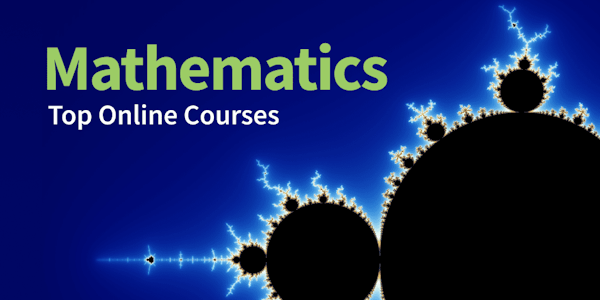This comprehensive MicroBachelors program in Mathematics and Statistics Fundamentals introduces students to the essential mathematical and statistical concepts, methods and techniques which they can use to grow their skills in quantitative careers, or as a step towards further study at undergraduate level or in specialised subjects.
Spanning four individual courses, all of which are self-paced and asynchronous, this programme provides students with maximum flexibility to learn with a world-leading institution from anywhere in the world in a way that fits their schedule. Students will be introduced to foundational mathematical and statistical concepts, as well as gain essential skills in the methods of calculus and linear algebra required for economic-based subjects.
These courses are based on service-level statistics courses offered as part of the University of London degree programmes in Economics, Management, Finance and the Social Sciences (EMFSS), with academic direction from the London School of Economics and Political Science (LSE). They equip students with the fundamental knowledge and tools to set them up for success in second and third-year courses in subjects such as economics, finance, data science, mathematics, statistics, business analytics and programming.
Those that complete this MicroBachelors program may wish to go on to apply to the University of London's academically rigorous EMFSS degree programmes that give learners the opportunity to earn a BSc from a top London university wherever they are in the world.
Should you wish, you may elect to just study some of the individual courses within the MicroBachelors program, perhaps to build or refresh quantitative skills for career advancement.
No prior mathematics or statistics knowledge is required for this programme.
Mathematics 1a: Differential calculus
- Functions and graphs
- The derivative
- Curve sketching and optimisation
- Functions of two variables and partial derivatives
- Critical points of two-variable functions
Mathematics 1b: Integral calculus, algebra, and applications
- Integration
- Profit maximisation
- Constrained optimisation
- Matrices, vectors, and linear equations
- Sequences, series, and financial modelling
Statistics 1a: Introductory statistics, probability and estimation
- Mathematical revision and the nature of statistics
- Data visualisation and descriptive statistics
- Probability theory
- The normal distribution and ideas of sampling
- Point and interval estimation
Statistics 1b: Statistical methods
- Hypothesis testing I
- Hypothesis testing II
- Contingency tables and the chi-squared test
- Sampling design and some ideas underlying causation
- Correlation and linear regression



